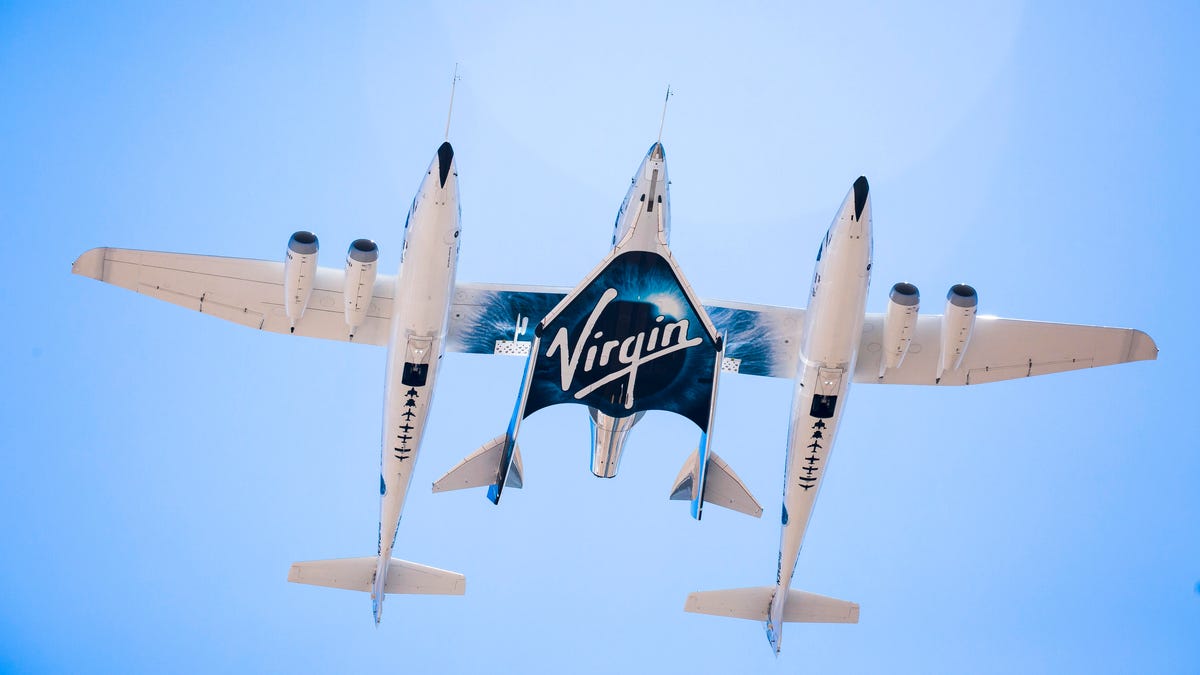Virgin Galactic will keep its spaceplane for tourists on the ground for now
After an aborted test in December, Richard Branson's company will try again from New Mexico.

VMS Eve and SpaceShipTwo Unity
Virgin Galactic, Richard Branson's nascent space tourism company, plans to make its latest run at the edge of our atmosphere from New Mexico's Spaceport America soon, but not this weekend.
The company tentatively planned to attempt a test flight of its spacecraft as soon as Saturday, Feb. 13, but on Friday the company announced it had "decided to allow more time for technical checks."
Flight test update: We have been progressing through our pre-flight preparations and, during that process, we have decided to allow more time for technical checks. We are working to identify the next flight opportunity. pic.twitter.com/DN58qbOoE0
— Virgin Galactic (@virgingalactic) February 12, 2021
Virgin is working to complete a few more test flights before Branson takes his own long-awaited suborbital joyride, followed by customers who are paying somewhere in the neighborhood of a quarter of a million dollars to become astronauts for a day.
The company attempted a test flight in December, but a computer on board the spacecraft SpaceShipTwo Unity aborted ignition of the rocket motor. The Virgin Galactic team now says it's corrected the problem and tested it on the ground. The next step is to try again.
It's not clear when we could see Unity and the Virgin carrier aircraft VMS Eve take off from the high desert north of Las Cruces. Previously Virgin Galactic said it has flight opportunities throughout February if weather or technical issues don't cooperate.
The team has installed the hybrid rocket motor into SpaceShipTwo Unity as part of pre-flight preparations for our flight test window opening this week. Thanks to Senior Propulsion Engineer, and New Mexico native, Rich C De Baca, for the video walkthrough! pic.twitter.com/gXW3PMDa7V
— Virgin Galactic (@virgingalactic) February 8, 2021
"The flight will incorporate all of the original test objectives from the previous test flight, including evaluating elements of the customer cabin, testing the livestream capability from the spaceship to the ground, and assessing the upgraded horizontal stabilizers and flight controls during the boost phase of the flight," Virgin Galactic said in a statement.
Branson and his company have been working toward sending paying customers to space for over 15 years now. Progress has been delayed during that time by issues including a fatal accident and, more recently, the COVID-19 pandemic, but the finish line for Virgin Galactic has been in view for the past few years. The company has unveiled the look of its flight suits, cabin interior and even the cafe where astronauts and their families will hang out prior to leaving Spaceport America.
As soon as later this month, Branson and Virgin could be just one more flight away from finally realizing a dream years in the making.
Correction, Feb. 11: An earlier version of this story incorrectly described the capabilities of Virgin Galactic's space plane. It's technically capable of only suborbital flights.
Follow CNET's 2021 Space Calendar to stay up to date with all the latest space news this year. You can even add it to your own Google Calendar.

